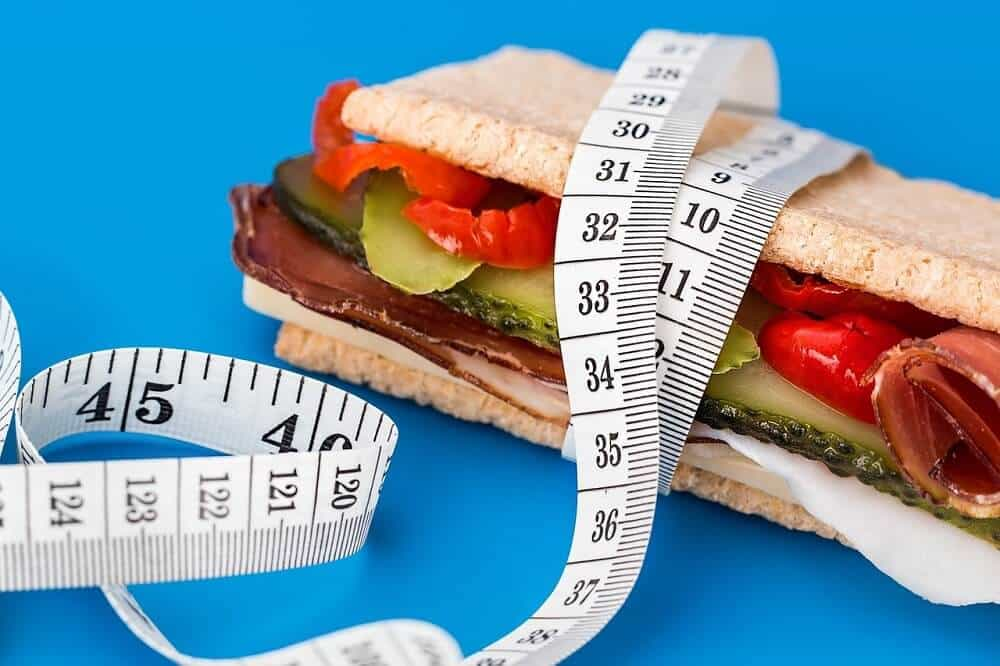Every year, approximately 45% of people around the world try to lose weight by using specific diet programs.. Some diets aim to curb appetite to reduce food intake, others suggest limiting the intake of calories contained in certain foods such as carbohydrates or fats. We have selected 8 of the best diets in the world to help you lose weight and improve your physical condition.
 Plant-based diets
Plant-based diets
Low-fat diets
Popular for several decades, the low-fat diet provides for a maximum of 30% daily fat intake (some of these can even reduce the amount of calories from fat to 10%), drawing mainly from plant sources. Low-fat diets limit fat intake as they provide about twice the number of calories per gram compared to proteins and carbohydrates. For this reason, about 80% of carbohydrates and 10% of proteins are added to a diet with only 10% fat.
Although low fat diets prove effective for weight loss in controlled situations, low carbohydrate diets seem to be preferable today. Their success, especially among obese people, is however proven.
Benefits: they have a positive effect on the risk of heart disease and stroke, they help reduce inflammation and improve diabetic markers.
Downsides: fat still plays an important role in hormone production, nutrient absorption and cell health. In addition, low-fat diets have been linked to a higher risk of metabolic syndrome.
Low-carb diets
Low carbohydrate diets are among the most popular diets for weight loss. The best known examples include the Atkins diet, the ketogenic (keto) diet and the low-carbohydrate and high-fat diet (LCHF). In some of these, like the chet diet, the carbohydrate content is limited to less than 10% of total calories, compared to 30% or less for other types, all in favor of proteins and fats, which represent the greatest part of the nourishment. The principle is to stimulate the body to use fatty acids, instead of carbohydrates, to obtain energy (a process called ketosis).
Benefits: Many studies claim that low carbohydrate diets can also be more effective than low fat diets. They appear to be quite effective in burning harmful abdominal fat and can reduce risk factors for heart disease. They can also improve blood sugar and insulin levels in people with type 2 diabetes.
Downsides: Often, a low carbohydrate diet can increase LDL (bad) cholesterol levels. In some individuals, they can also be difficult to adopt, creating digestive disorders. In more rare cases, a condition known as ketoacidosis, a dangerous metabolic condition that can be fatal if left untreated, can occur.
The paleo diet
Intermittent fasting is a diet that strategically alternates fasting periods with feeding periods; in essence, this diet limits the time you are allowed to eat, thus reducing your calorie intake. Weight loss can also be sensitive, just avoid compensating by eating too much food during the periods of consumption allowed.
Benefits: intermittent fasting can increase fat burning, preserving muscle mass; it can also be linked to anti-aging effects, improved brain health, reduced inflammation and many other benefits.
Downsides: in general, intermittent fasting is safe for most healthy adults, but for those who are sensitive to sharp drops in blood sugar (diabetics; people with low weight or with eating disorders; pregnant or lactating women), it would be better to talk to a nutritionist first.
DASH diet
Dietary Approaches to Stop Hypertension, or DASH diet, it is a food plan born with the intent to cure hypertension, through the consumption of a lot of fruit, vegetables, whole grains and lean meats; it is a diet low in salt, red meat, added sugars and fats.
Like the Mediterranean diet, the DASH diet is not slimming, although many manage to lose weight.
The DASH diet recommends specific portions of different food groups; depending on the daily calorie plan, there will be a different number of servings.
Benefits: The DASH diet reduces blood pressure levels and other heart disease risk factors. Helps fight recurrent depressions, reduces the risk of breast and colorectal cancer.
Downsides: While the DASH diet can help you lose weight, there are doubts about salt intake and blood pressure. Eating too little salt has been linked to increased insulin resistance and an increased risk of death in people with heart failure.
The Mediterranean diet
The Mediterranean diet is based on foods traditionally consumed in countries like Italy and Greece. The Mediterranean diet recommends a lot of fruit, vegetables, nuts, seeds, legumes, tubers, whole grains, fish, seafood and extra virgin olive oil; in more moderation, poultry, eggs and dairy products can be consumed. Rather limited the quantities of red and / or processed meats, cereals and refined oils, trans fats and sugar combined with highly processed foods.
Benefits: Although it was born with the aim of reducing the risk of heart disease, it is effective for losing weight. By encouraging you to eat many antioxidant-rich foods, it helps fight inflammation and oxidative stress by neutralizing free radicals, reducing heart disease and premature death.
Downsides: as already said, the Mediterranean diet is not strictly a weight loss diet, so some individuals may not see significant weight loss if the calories consumed are substantial.
WW (Weight Watchers)
Weight Watchers is one of the most popular weight loss programs in the world. Not limiting any food group, the WW plan requires eating within established daily points to achieve ideal weight. How does it work? WW attributes points to different foods and drinks, depending on the calorie, fat and fiber content; to achieve the desired weight, the daily allowance in points must be respected.
Benefits: those who follow WW programs seem to be more successful in maintaining this decline after several years. Being more flexible, it allows people with special dietary restrictions (e.g. allergies) to join the plan.
Downsides: WW can be expensive, and this depends on the type of plan (by subscription). The flexibility of foods is certainly optimal, but if you choose the less healthy ones …
You may also like
The diet to tone up
The diet to tone up is not only suitable for those who want to lose weight, but also for those who want to keep their muscle structure taut and strong, unfortunately this tends to relax over the years. You have to focus on a good protein intake and the consumption of foods with a low… Continue reading The diet to tone up
Successful weight loss tips for women
For many women the loss of body weight is much more than a purely aesthetic issue, since there are now many factors in today’s life that can compromise the overall psychophysical balance, and reflect on the silhouette. Of course, when we imagine the possible solutions to the problem of being overweight, we essentially think of… Continue reading Successful weight loss tips for women
Best practices to tone-up your body
Lifestyle changes in recent decades have led people to adopt a sedentary lifestyle. Many people spend most of their day doing activities that do not work their muscles properly and only allow them to burn minimal amounts of calories. Regular physical activity can provide a great deal of benefit and, after just a few weeks,… Continue reading Best practices to tone-up your body
What (and when) to eat to maximize your fitness workout
Eating and Fitness exercise: here are 5 tips to maximize your workouts! You got to know when and what to eat: it will make a difference in your next fitness workouts.
